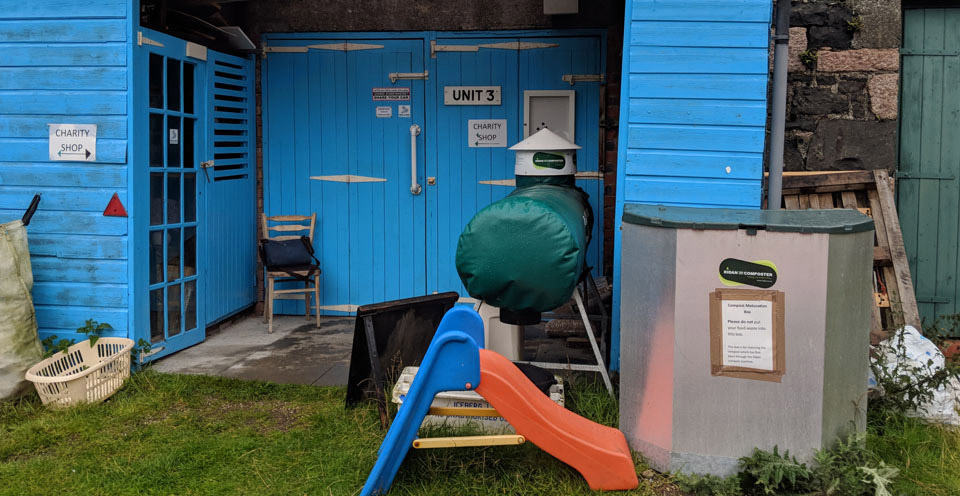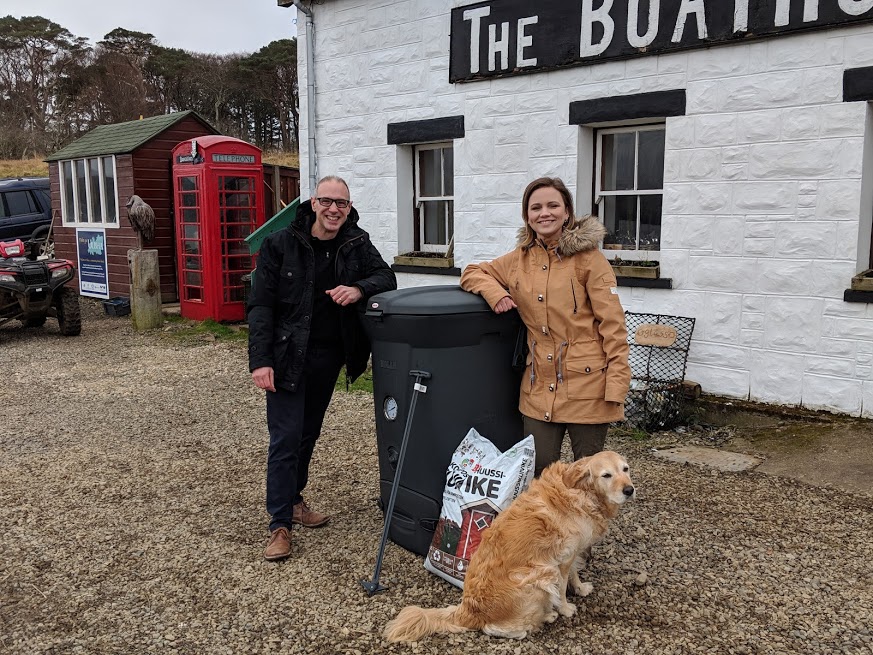Food Waste
Food waste trial Tobermory
The grant-funded food waste collection trial, run by Mull and Iona Community Trust ended on the 13th March 2020
The trial has been a great success. By taking part, in the last six months, the participants in Tobermory helped stop 6 tonnes of waste food going to landfill, resulting in 50 Tonnes of greenhouse gas being saved plus the production of usable compost which will be shared freely amongst those on the trial who can use it.
Now the grant funding for the trial had ended we are looking at other ways to make this a permanent service.
We were funded by the CCF to trail a food waste collection scheme in Tobermory. Food waste was collected weekly from around 70 households and composted in our industrial composter. In under a year we collected 5.8 tonnes that was then composted. An average of 4.9kg per household per week, that would have otherwise gone to landfill.
Using our Big Hanna Composter to convert food waste to compost is a sustainable solution with a small carbon footprint! We even used our Electric Berlingo van to do the collections. We are in the process of looking for further funding to continue this service.
Composting
We have provided hotbin and biolan composters to local businesses and schools to help prevent food waste going to landfill.
Why compost? Composting is an inexpensive, natural process that transforms your kitchen and garden waste into a valuable and nutrient rich food for your garden. It’s easy to make and use. Environmental reasons. Do your bit to reduce the amount of waste sent to landfill.
Educational Events
We run several events, we have run events in 3 of Mull’s schools that covered composting and food waste. There is a really good resource at Love Food Hate Waste.
We have also run a Real Junk Food Dinner where all the food used for the menu was used from the Community Fridge. This was a real challenge, not knowing what would be available until the last minute! We also have been at the StrEAT Food festivals in Tobermory highlighting the climate benefits of eating local. If you want to run one of these events, give us a call to get ideas.
Buying Local & Seasonal
There are many reasons for buying local food. Your supporting local farmers and producers, contributing to the local economy and helping to protect the countryside.
Many of the foods on Mull were born, raised and butchered on Mull. Foods reared in this way have a much lower impact on greenhouse gas emissions.
If you don’t buy local food, the food you buy may have been air-freighted, as well as being trucked up and down the country. A quarter of all lorries on the road carry food. Air freighting of fruit and vegetables is a major contributor to greenhouse gas pollution from our food supply system. Cutting the distance your food has to travel is a simple idea that many shoppers respond to. It is better still to buy seasonally and think about eating less, but better quality (especially grass-fed), meat and dairy to cut your carbon footprint further.
Eating local food is not the ONLY answer, but it is a small contribution that you can make to reduce your carbon footprint.




